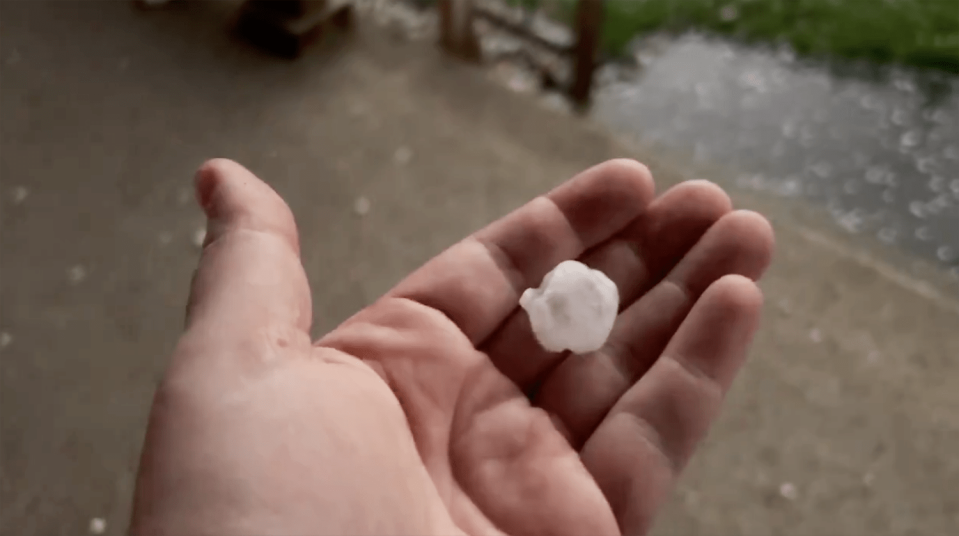
On April 16, 2024, a severe weather event unfolded across the United States with a particular focus on the Midwest. The stretch of severe weather continued from the Plains to parts of the Midwest, putting millions of people at risk for flooding, high winds and tornadoes. The National Weather Service reported enhanced risks of thunderstorms in portions of Kansas, Iowa, Missouri and northern Illinois with possible supercell thunderstorms that could bring damaging winds, hail and tornadoes EF2 or stronger. These storms were expected to move eastward from southern Michigan into the Ohio Valley on Wednesday. In addition to the severe weather threat, a low-pressure system brought severe storms with very large hail, tornadoes and damaging winds early in Kansas and Nebraska. The storm system was also responsible for triggering tornadoes in eastern Kansas and far southern Nebraska overnight. These storms could produce hailstones the size of baseballs and strong tornadoes (EF2 strength or greater) in this region, especially during the afternoon and evening hours. A larger portion of the Midwest was under a Level 2 of 5 risk for severe thunderstorms on Tuesday, with additional storms forecast to bubble up throughout the day. Pockets of heavy rainfall may also trigger flash flooding in parts of the northern Plains and Mississippi Valley, even outside of the areas experiencing severe thunderstorms. Rainfall totals could reach 3 inches and fall at rates of 1 to 2 inches per hour in some places, overwhelming rivers and streams and potentially leading to flash flooding. The storm system is expected to continue moving north on Tuesday and Wednesday, with parts of southern Iowa, Illinois, and Missouri facing a risk of destructive hail, wind, and tornadoes through Tuesday night. In addition to the severe weather threat in the Midwest, high winds also posed a risk for wildfires in parts of the Southwest and Plains. The National Weather Service placed fire conditions at a critical level for western Texas, New Mexico, Colorado, Kansas and the Oklahoma Panhandle on Monday and Tuesday. Strong winds combined with low humidity and brittle brush could fuel rapid spread of any fires igniting in the warning area, prompting warnings to avoid activities that may spark fires. The severe weather event comes after another storm system dumped rain across the U.S., including the Great Lakes and parts of the Northeast last week.



